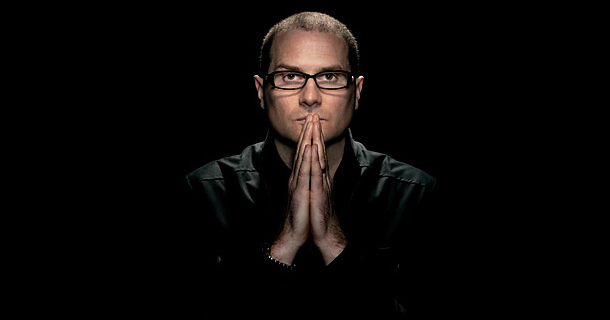Excerpt from Misfit Faith, chapter 5: “Shit Happens (Or, The Excruciating Disruption of Power)”
Christianity as a kind of panacea and cure-all for every single problem we face is a complete farce.
In fact, it’s precisely the idea that we are supposed to feel whole and complete that creates most of our problems and confusion in the first place.
Going all the way back to the creation narrative we find man longing for wholeness and fulfillment—in Adam’s case it was the fruit of the forbidden tree that represented the “sacred object” that would fill his void. The history of humankind ever since has been a quest to discover and seize that longed-for something, that elusive missing piece that will put everything in its right place, dot every i, and cross every t. For some it is sought in money, for others in fame, and for others still this wholeness is hoped for in drugs, alcohol, or some relationship or another. But the problem, as most of us know, is that these things—innocuous though they may be in and of themselves—never truly deliver the satisfaction that we expected of them.
Now it is at this point that your eyes are probably starting to glaze over (at least if you’ve had some experience in evangelical Christianity). You’ve been to enough rallies, crusades, and evangelistic meetings to be torturously familiar with this whole spiel: “Are you unhappy? Unfulfilled? Sick and tired of being sick and tired? You feel this way because you’ve been seeking happiness in all the wrong things,” et cetera, et cetera (you know the rest). It is here that the preacher generally shifts gears and explains that all the happiness and wholeness that sinners have been seeking from worldly sources can only be found in Christ and a relationship with him.
And it is here that I would demur and explore a very different approach.
What if faith is not so much about filling voids and plugging God-shaped holes and instead is more about getting to that existential place where we embrace the doubt, complexity, and ambiguity of life in this world?
What if Christianity, far from reinforcing the “fulfillment narrative” according to which Jesus (rather than worldly things) satisfies us, actually sets us free from the oppressive notion that anything can?
In short, what if the life of faith is a life that accepts just how crap the life of faith really is?
Could it be that sadness is just happiness for deep people after all?



